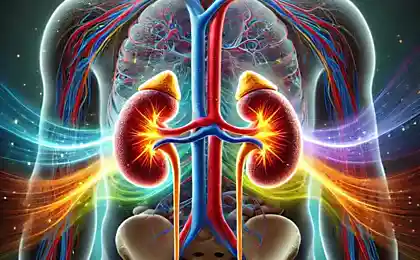191
How to Lower Stress Hormone: 16 Ways to Be Happy

Introduction. Modern life is full of stresses: deadlines, traffic jams, domestic difficulties and endless notifications on a smartphone. Chronic stress is not only a psychological problem, but also a biochemical process that directly affects the level of cortisol, the so-called “stress hormone”. But the good news is that there are effective ways to help your body cope and feel happier.
1. Physical activity is a natural remedy
Regular exercise reduces cortisol levels. Cardio, yoga, or even a regular outdoor walk triggers the production of endorphins that counteract stress.
2. Meditation and Breathing Practices
Meditation helps calm the mind, and mindful breathing reduces the physiological response to stress. Try the 4-7-8 technique: inhale by 4 counts, hold your breath by 7 and exhale by 8.
3. Reduce caffeine intake
Coffee and other stimulants can increase cortisol levels, especially if you drink them on an empty stomach or in large quantities. Switching to herbal teas will help reduce tension.
4. Sleep balance
Lack of sleep increases stress reactions of the body. Try to lie down and get up at the same time, creating a ritual for falling asleep: a warm shower, giving up screens an hour before bedtime, soft lighting.
5. Use of adaptogens
Herbs such as ashwagandha, rhodiola pink and ginseng are able to regulate cortisol levels and improve overall well-being. Before admission, consult a doctor.
6. Laughter is the best medicine
Laughter reduces stress hormones and improves the immune system. Watch a comedy or spend time with people who make you laugh.
7. Hugs and touches
Physical contact, whether it’s hugging loved ones or even stroking a pet, contributes to the production of oxytocin, the “love hormone” that lowers cortisol levels.
8. Music as therapy
Listening to your favorite music helps reduce anxiety. Slow compositions or sounds of nature are especially effective.
9. Organization of working hours
Overload at work is one of the main causes of stress. Use time management techniques such as the Pomodoro method or task planning to reduce stress.
10. Healthy eating
Foods high in magnesium, such as nuts, avocados and greens, help manage stress. Avoid processed foods and sugars, which can exacerbate anxiety.
11. Water is a source of calm
Dehydration can increase symptoms of stress. Make sure you drink enough water throughout the day.
12. Gratitude as a habit
Take a few minutes a day to write down three things you are grateful for. This helps to change the focus from negative to positive.
13. Disconnection from gadgets
Digital overload exacerbates stress. Try a digital detox for at least a couple of hours a day.
14. Nature is the best medicine
Spending time outdoors, especially among trees or near water, helps reduce stress levels and restore mental balance.
15. Aromatherapy
Essential oils of lavender, jasmine or orange can calm the nervous system. Add them to the bath or use an aroma lamp.
16. Professional assistance
If your stress level remains high, do not hesitate to consult a psychologist. Cognitive behavioral therapy and other techniques can provide significant help.
Conclusion. Stress is inevitable, but it can be managed. By making small changes to your daily routine, you will not only lower your cortisol levels, but you will also take a step towards a happier and more harmonious life.























